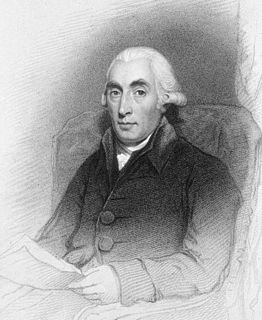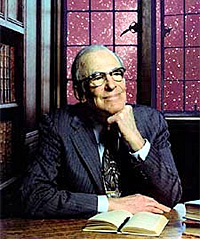A Quote by Nikola Tesla
Electrical science has revealed to us the true nature of light, has provided us with innumerable appliances and instruments of precision, and has thereby vastly added to the exactness of our knowledge.
Related Quotes
Too much apparatus, designed to guide us in experiments and to supplement the exactness of our senses, makes us neglect to use those senses...The more ingenious our apparatus, the coarser and more unskillful are our senses. We surround ourselves with tools and fail to use those which nature has provided every one of us.
...night possessed us and the shadow of death encompassed us, for we had fallen into sin and lost the power of sight which was ours by God's grace and by which we were able to perceive the light that bestows true life. Night and death had been poured out on our human nature, not because of any change in the true light, but because we had turned aside and no longer had any inclination towards the life-bearing light. In the last times, however, the Giver of eternal light and Source of true life has had mercy upon us.
Let us, then, take our compass; we are something, and we are not everything. The nature of our existence hides from us the knowledge of first beginnings which are born of the nothing; and the littleness of our being conceals from us the sight of the infinite. Our intellect holds the same position in the world of thought as our body occupies in the expanse of nature.
You can't tear up everything just to get the dollar out of it without suffering as result. It is a travesty to burn our woods and thereby burn up the fertilizer nature has provided for us. We must enrich our soil every year instead of merely depleting it. It is fundamental that nature will drive away those who commit sin against it.
What am I, really? The beautiful thing...is nobody can tell us what we are. Nobody can really tell us. Not in a way that's going to be satisfactory to us. Our true nature is self-authenticating. When we bump into our true nature, it authenticates itself. Something inside us knows. This...is what has been sought for, longed for, looked for. This is it. Usually, it's not what we expected.
How unutterably sweet is the knowledge that our Heavenly Father knows us completely. No talebearer can inform on us; no enemy can make an accusation stick; no forgotten skeleton can come tumbling out of some hidden closet to abash us and expose out past; no unsuspected weakness in our characters can come to light to turn God away from us, since He knew us utterly before we knew him and called us to Himself in the full knowledge of everything that was against us.
The library connects us with the insight and knowledge, painfully extracted from Nature, of the greatest minds that ever were, with the best teachers, drawn from the entire planet and from all our history, to instruct us without tiring, and to inspire us to make our own contribution to the collective knowledge of the human species.
Upon the whole, Chymistry is as yet but an opening science, closely connected with the usefull and ornamental arts, and worthy the attention of the liberal mind. And it must always become more and more so: for though it is only of late, that it has been looked upon in that light, the great progress already made in Chymical knowledge, gives us a pleasant prospect of rich additions to it. The Science is now studied on solid and rational grounds. While our knowledge is imperfect, it is apt to run into error: but Experiment is the thread that will lead us out of the labyrinth.
Our knowledge of stars and interstellar matter must be based primarily on the electromagnetic radiation which reaches us. Nature has thoughtfully provided us with a universe in which radiant energy of almost all wave lengths travels in straight lines over enormous distances with usually rather negligible absorption.
Broader and deeper we must write our annals, from an ethical reformation, from an influx of the ever new, ever sanative conscience, if we would trulier express our central and wide-related nature, instead of this old chronology of selfishness and pride to which we have too long lent our eyes. Already that day exists for us, shines in on us at unawares, but the path of science and of letters is not the way into nature. The idiot, the Indian, the child, and unschooled farmer's boy, stand nearer to the light by which nature is to be read, than the dissector or the antiquary.




































